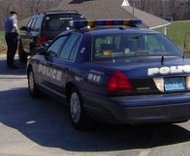4/9/2013
Massachusetts Supreme Court Clears Drivers In Marijuana SearchThe scent of reefer is not enough to justify an automobile search, Massachusetts Supreme Judicial Court rules.

In a series of three rulings issued Friday, the Massachusetts Supreme Judicial Court cracked down on police who have been using evidence of marijuana possession as a pretext to search automobiles. Just two years ago, justices handed down the Cruz decision making it clear that automobile searches could not be conducted on the basis of finding marijuana (view ruling), but police have continued the practice.
Antonio L. Pacheco found this out as he sat in a gray sedan that was parked in a handicapped spot with four friends. A state trooper approached, noticing the fogged windows. He knocked on the window, smelling marijuana as soon as the window was lowered.
The trooper then went and searched the vehicle, finding a small bag with less than one ounce of pot on the floor mat behind the passenger seat. Nothing else was found in the vehicle's interior, so the trooper opened the trunk and began going through its contents. He found a black backpack that contained a semiautomatic handgun and no other items of interest. Pacheco admitted he had the gun for self-protection, but he did not have the "firearms identification card" Massachusetts requires.
In 2008, 62 percent of state voters approved an initiative that decriminalized possession of up to one ounce of marijuana. The penalty for possession was made a civil fine, meaning possession is not a criminal offense. To justify the search, prosecutors argued that by passing around a joint, Pacheco was guilty of "distribution" of marijuana, which is punishable by two years in jail. The state argued the trooper's search was valid because he was investigating the crime of distribution. The high court did not agree.
"An officer smelling freshly burnt marijuana inside a stopped vehicle, and an occupant surrendering a noncriminal amount of marijuana, did not, without more, support probable cause to believe that a criminal amount of marijuana would be found in the vehicle," Justice Fernande R.V. Duffly wrote for the court. "Absent articulable facts supporting a belief that any occupant of the vehicle possessed a criminal amount of marijuana, the search was not justified by the need to search for contraband."
As a result, the evidence of the gun was suppressed, leaving the state only able to impose a civil fine on Pacheco for the marijuana possession. The court handed down identical findings in the cases of Clint Daniel and Kiiyan Jackson. The American Civil Liberties Union of Massachusetts, which filed briefs on behalf of Pacheco, was pleased by the outcome.
"Today's rulings mean that people who share small amounts of marijuana don't have to fear criminal prosecution or having police officers use the sharing of marijuana as a reason to search their belongings," ACLU legal director Matthew R. Segal said in a statement on Friday. "Just as important, hopefully these rulings mean that police officers will focus on serious crimes instead of wasting their time investigating people sharing marijuana."


